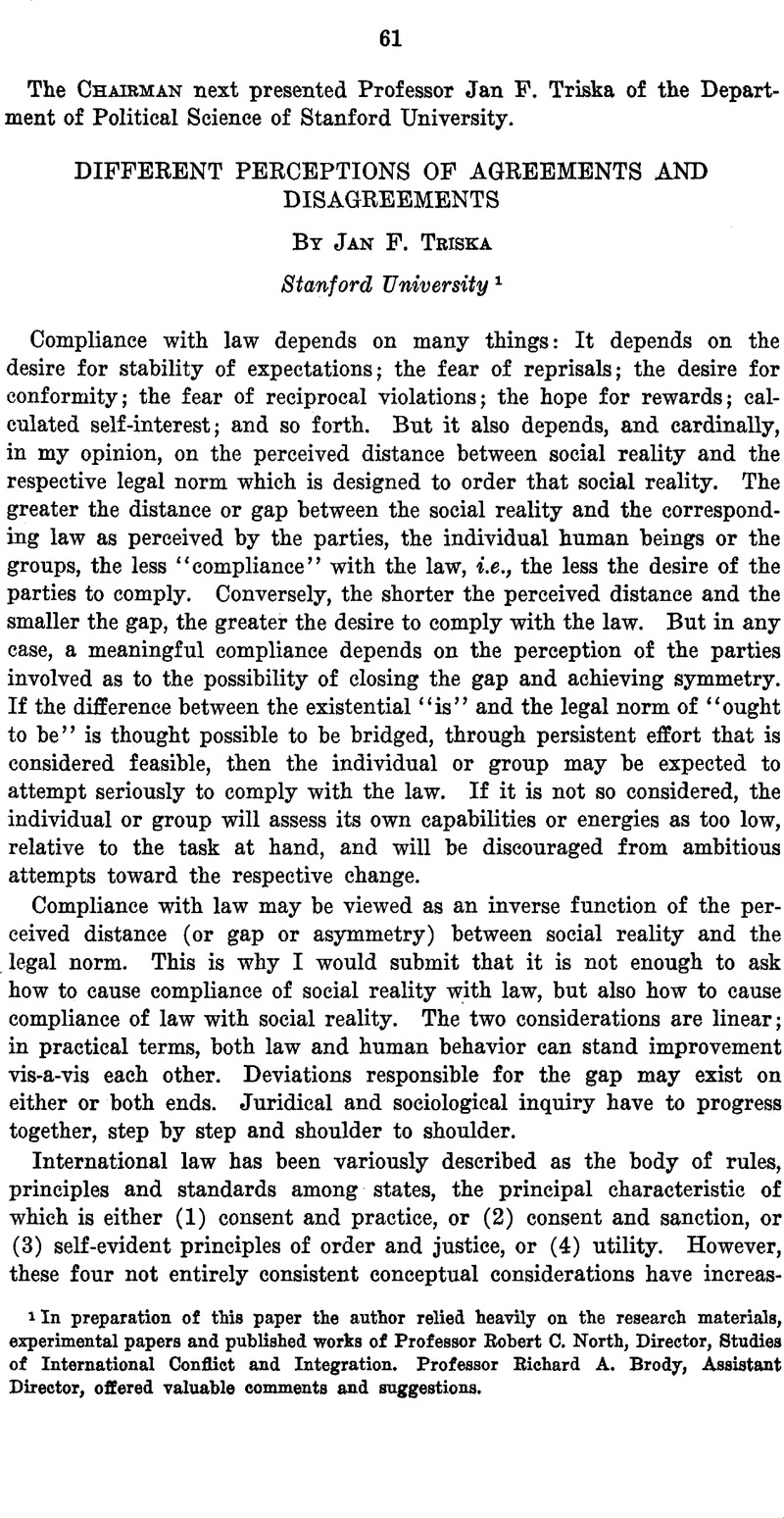No CrossRef data available.
Published online by Cambridge University Press: 27 February 2017

1 In preparation of this paper the author relied heavily on the research materials, experimental papers and published works of Professor Eobert C. North, Director, Studies of International Conflict and Integration. Professor Richard A. Brody, Assistant Director, offered valuable comments and suggestions.
2 In Merton, Broom and Cottrell, Sociology Today 279 (New York: Basic Books, 1959).
3 Jan P. Triska and David D. Finley, “Soviet-American Relations: A Multiple Symmetry Model,” Stanford Studies of the Communist System (mimeo., 1964, 32 pp.).
4 1. Iran, 1946; 2. Greece, 1947; 3. Marshall Plan, 1947; 4. Czechoslovakia, 1948; 5. Berlin, 1948; 6. Yugoslavia, 1948; 7. Korea, 1950-; 8. Tibet, 1950-; 9. Taiwan, 1950-; 10. Indo-China (Vietnam), 1950-; 11. East Germany, 1953; 12. NATO, esp. 1955; 13. Poland, 1956; 14. Hungary, 1956; 15. Suez, 1956; 16. Lebanon-Jordan, 1958; 17. Quemoy, 1958; 18. Berlin, 1958-1959; 19. Tibet, 1959; 20. Laos, 1959-; 21. U-2, 1960; 22. The Congo, 1960; 23. Bay of Pigs, 1961; 24. The Berlin Wall, 1961; 25. Albania, 1961; 26. Finland, 1961; 27. India (China), 1962; 28. U. 8. (Cuba), 1962; and 29. China, 1963.
5 « ‘ ‘ Soviet Eisk-Taking Behavior,'’ Stanford Studies of the Communist System, in progress.